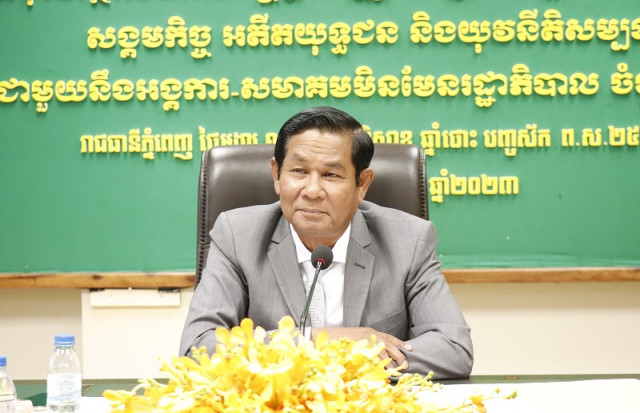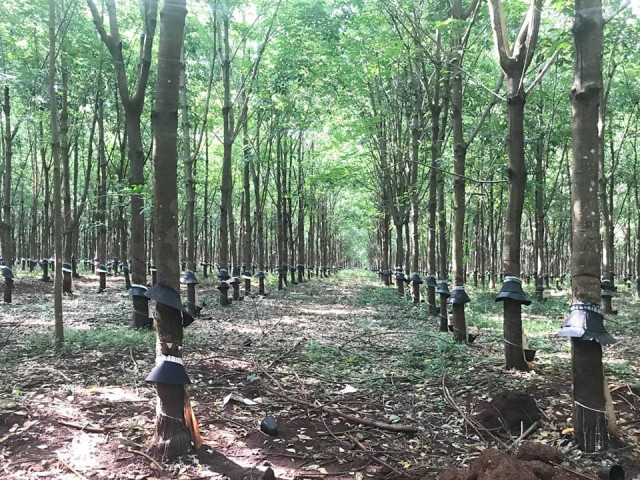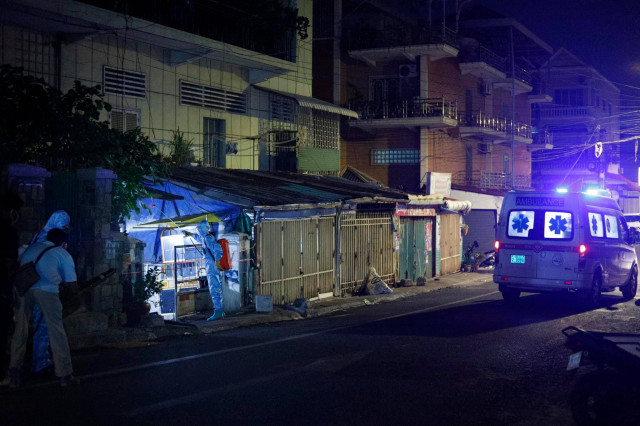Ministry Spurns Civil Groups’ Concerns Over Intercountry Child Adoption

- By Nhoek Samoun
- July 3, 2023 3:11 PM
PHNOM PENH – The Ministry of Social Affairs, Veterans and Youth Rehabilitation has rejected civil society organizations’ allegations of intercountry adoption depriving children of their rights and interactions with their birth parents.
On June 28, four civil society organizations called on the Cambodian and the Italian governments to stop reopening international adoptions, saying Cambodia had not embraced the best protection for children in the past, neither did it prevent the recurrence of fraud and corruption in international adoption.
The signatories include the Cambodian Center for Human Rights (CCHR), the Cambodian Human Rights and Development Association (ADHOC), the Cambodian League for the Promotion and Defense of Human Rights (LICADHO) and the Intercountry Adoptee Voices.
Their concerns rose after the Italian Commission for Intercountry Adoptions (Italy’s Commissione per le Adozioni Internazionali) met with Cambodia’s Social Affairs Ministry in May 2023.
Following the meeting, three Italian adoption agencies are about to be accredited to operate in Cambodia, with already nine adoption procedures pending in 2023.
Despite new rules regulating intercountry adoptions being in place since 2009, the four organizations fear that abuses observed in the 2000s will resurface.
“National and international civil society organizations have issued a joint statement as the past has seen widespread irregularities such as corruption in orphanages and some local authorities falsifying documents and children's identities,” said LICADHO Operations Director Am Sam Ath.
He added that fraud in the adoption process and the lack of protection for children disqualify children from seeing their birth parents, while the statement points out that Cambodia’s weak rule of law could lead to a failure in enacting the country’s new law on adoptions.
Cambodia ranks 139 out of 140 in the World Justice Project’s 2022 rule of law index and is in the bottom quarter in Transparency International’s 2022’s index on corruption perceptions.
But Social Affairs Ministry Spokesperson Touch Channy pointed out that such concerns are baseless as no country has yet registered to adopt from Cambodia said the new regulations came into force in 2009.
“Why did those civil groups say that children were deprived of their rights and the opportunity to see their parents? You can say [so] if such cases really occurred,” he said on July 1. “I would like to say that until this time [the 2009 new law], Cambodia has not given children to any international countries.”
Rampant abuses in the 2000s
Throughout the 2000s, many countries outlawed international adoptions from Cambodia after evidence of unethical and illegal procedures was made public. Orphanage staff, with the approval of the authorities, were used to falsify documents to declare some children orphaned or abandoned, often altering their names and birthdates.
“Children were then adopted abroad without their parents’ knowledge or informed consent,” the joint statement said.
To comply with the Hague Convention on the Protection of Children and International Cooperation in Adoption, which Cambodia acceded to in 2007, the law on International Adoption of Cambodia came into force on Dec. 3, 2009, in accordance with Article 48 of the Constitution.
Social Affairs Ministry Spokesperson Touch Channy said that the new law provides that countries must first send agents to register with Cambodia, providing better guarantees to prevent abuses. He added that a number of principles have been set.
The first step is to ask for adoption in the country, the second step is to find a partner abroad, and the next step, if there is no cooperation partner, the children will be sent to an orphanage, Channy said.
He added that international adoption is beneficial for children from disadvantaged households, as they will receive better support for a living.
But Am Sam Ath of LICADHO said that civil society organizations see shortcomings in the new regulation and request the government to halt the upcoming adoption procedures until new mechanisms have been put in place to fully guarantee child protection.
“Civil society groups urge the government to end international adoption to ensure the protection of children's rights,” he said. “But what worries us is that there is no clear mechanism for providing child protection, international adoption, and certain procedures.”
“While Cambodia has enacted new laws governing intercountry adoptions since 2009, there remains a lack of failsafe protections against the rampant fraud and corruption that led to fraudulent adoptions in the past,” the joint statement read.
Touch Channy said that Cambodia is currently preparing additional protection mechanisms, without being more specific. He said that more time was required.
In the meantime, the pending adoptions between Cambodia and Italy do not deprive the children of ideals or harm the children, he said.
Teng Yalirozy contributed to the story.















